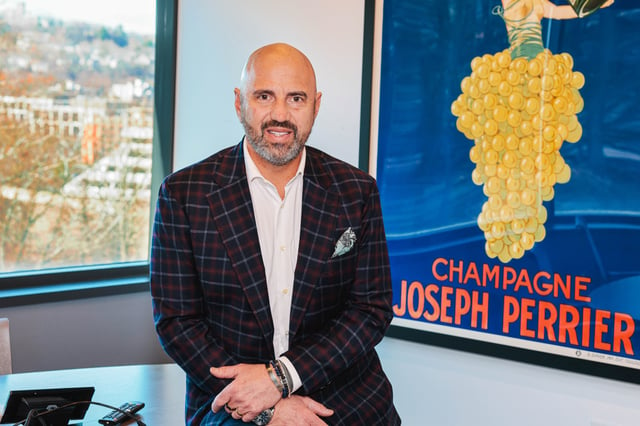Why brick-and-mortar stores are still the best way to interact with consumers
How many of you reading this article have been to a social event, told somebody what you do for a living, and heard in reply, “You’re building more stores? Doesn’t everybody buy everything online these days?”
You then patiently explain to them that, in fact, about 85% of retail purchases are made in stores and that, in fact, you have been tasked with a goal to open 70 new locations this year and are having a tough time finding available space.
Your questioner’s jaw drops.
Near the end of 2023, DLC secured two institutional joint venture partners to rapidly expand our open-air center portfolio. We acquired four centers within our traditional markets that comprise 765,000 sq. ft. of gross leaseable area, and we obtained a significant growth capital commitment that we intend to use to double the size of our portfolio over the next three years.
Retail real estate is experiencing a power surge.
Both institutional and private equity investors are aggressively snapping up retail real estate to secure better returns. Better returns than from office. Better than from multifamily. Better than from industrial.
Retailers seem to care less than ever before about the source of an order--exemplified by Target and its efficient in-store pickup system for online orders. They’ve got what you ordered in your local store. You pull up your car, pop your trunk open, and they put it in. The probability of returns is reduced by six times. Should you take it home and decide to return it, you just take it back to the store. And while you’re there, you are very likely to make additional purchases.
American consumers are spending, and one thing I hear consistently from tenants is that none of their stores are losers. All are making money in our open-air centers, which provide tenants with a massive merging of convenience, service, food, and value. And that value continues to rise with new classes of retail flowing into our centers.
Wellness, fitness, pet care, dental. The array of uses that are joining the tenant lists at our properties are more varied and more attractive to suburban consumers than they’ve ever been in the 30-plus-year history of DLC. Some of the deals we are doing are ones we’d never have imagined a decade ago.
We just did a retro-fit of what was an A.C. Moore space in Fredrick, MD at Fredrick Crossing for a 22,000-sq.-ft. veterinary hospital. And, considering today’s suburban lifestyles, we don’t intend it to be a unicorn. At that center a local resident can drop her dog off at the hospital in the morning, go to work, return at the end of her day, and shop at Walmart and Kohl’s, and Dollar Tree in the same center before picking up her pet. She can also pick up some dinner from one of our food and beverage tenants before she heads out of the parking lot.
DLC has been able to work around construction and materials delays for new builds and retro-fits such as this one with the establishment of Renovo Construction in 2020. We have also expanded our services to include architectural services with the acquisition of NWS based out of Chicago. That allows us to be able to sit down with retailers who are adding and redesigning their stores and getting them built the way they want them and delivering them on time.
Smart retailers who appreciate the increasing value of retail real estate want more stores. They want more physical presence and connectivity with the consumer. Brick-and-mortar has long proved itself as the most efficient and most productive way to create a loyal customer base. That’s why Target, Walmart, Costco, Home Depot, Best Buy, and Sears find themselves among the top 20 online shopping sites. And why so many top direct-to-consumer brands are building stores.
Having stores in brick-and-mortar centers is still the most efficient and productive way to interact with consumers.






